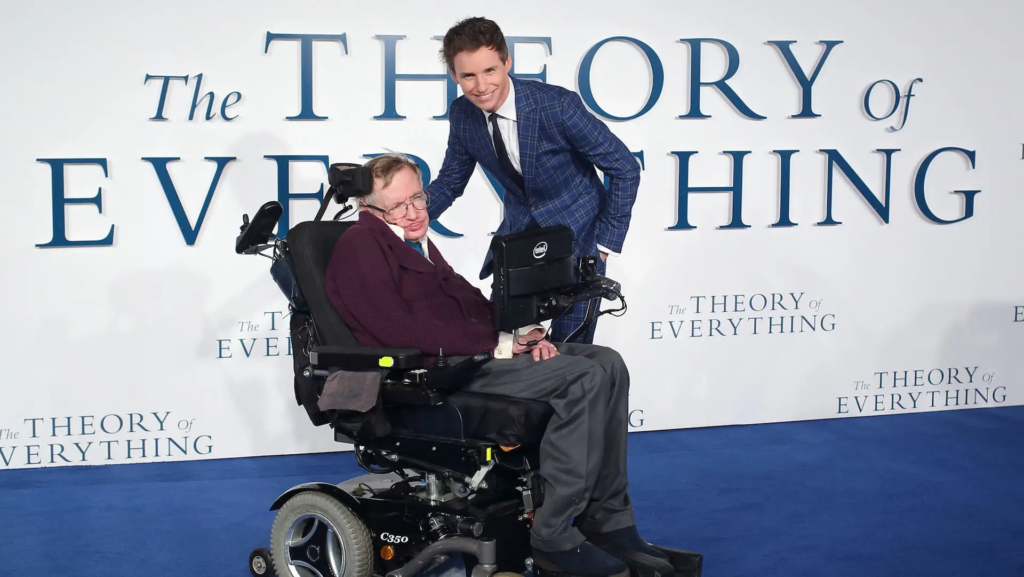Stephen Hawking, cheating the renowned theoretical physicist, cosmologist, and author, is widely celebrated for his groundbreaking contributions to our understanding of the universe. His work on black holes and the nature of time has left an indelible mark on science. However, a topic that has occasionally surfaced in discussions about Hawking is the notion of “cheating,” often stemming from misunderstandings or misinterpretations of his life and work. In this article, we will explore these claims, clarify the context, and provide a comprehensive view of Stephen Hawking’s legacy, his achievements, and the misconceptions surrounding him.

Early Life and Academic Journey
A Brilliant Mind
From an early age, he exhibited a keen interest in science and mathematics. He pursued his undergraduate studies at University College, Oxford, where he graduated with a first-class honors degree in physics in 1962. He then moved to the University of Cambridge for his PhD, focusing on cosmology and the properties of black holes.
Battling Adversity
Hawking’s academic journey was not without challenges. Doctors predicted he would only live for a few years, but Hawking defied the odds. He continued his work, adapting to his physical limitations with remarkable determination.
Contributions to Science
Black Hole Research
One of Hawking’s most significant contributions to theoretical physics was his work on black holes. This phenomenon, now known as Hawking radiation, challenged the existing understanding of black holes and has profound implications for the fields of cosmology and quantum mechanics.
The Universe in a Nutshell
Hawking’s popular science books, particularly “A Brief History of Time,” brought complex scientific concepts to the general public. His ability to explain intricate theories in an accessible manner has inspired countless individuals to explore the wonders of the universe. His later work, including “The Universe in a Nutshell” and “The Grand Design,” continued to illuminate topics such as the nature of time and the universe’s origin.
The “Cheating” Allegation: Origins and Clarification
Misinterpretations of His Work
The allegations of “cheating” concerning Stephen Hawking often stem from misunderstandings of his contributions and methodologies. Some critics have suggested that his work relied heavily on collaborators or computer programs due to his physical limitations. This misconception may arise from the collaborative nature of modern scientific research, where teamwork is essential for groundbreaking discoveries.
Collaboration in Science
It is essential to recognize that collaboration is a fundamental aspect of scientific inquiry. Many great scientists, including Albert Einstein and Isaac Newton, relied on the contributions of others. Hawking worked with several talented physicists, including Roger Penrose and Kip Thorne, which is common in the field. Their combined efforts have advanced theoretical physics in ways that a single researcher might not achieve alone.
The Role of Technology
Hawking utilized sophisticated technology to communicate and conduct research, particularly after losing his ability to speak. His speech-generating device, which he controlled with his cheek muscle, allowed him to articulate complex ideas and engage with the scientific community effectively. This technological assistance is not a form of “cheating” but rather an adaptation to overcome his physical challenges.
Popular Culture and Misconceptions
The Biopic “The Theory of Everything”
The 2014 film “The Theory of Everything,” which chronicles Hawking’s life and relationship with his first wife, Jane Wilde, brought his story to a broader audience. While the film is an inspiring portrayal of resilience and intellect, it also oversimplifies certain aspects of his life and work. Some viewers may interpret the dramatization as an indication of Hawking’s reliance on others, further perpetuating the notion of “cheating.”
Online Misinterpretations
Discussions about Hawking often contain myths or half-truths that misrepresent his capabilities and contributions. A critical examination of these claims reveals a misunderstanding of the collaborative and adaptive nature of scientific research.

The Legacy of Stephen Hawking
An Inspiring Figure
Stephen Hawking’s legacy extends beyond his scientific achievements. He is a symbol of perseverance and determination in the face of adversity. His life story serves as a reminder that barriers can be overcome with ingenuity and passion. Hawking’s impact is felt not only in physics but also in the realm of popular science and public engagement.
Advocacy for Science and Education
Hawking was a vocal advocate for science and education. He emphasized the importance of understanding the universe and the role of science in addressing global challenges. His commitment to inspiring future generations is evident in his work with organizations promoting STEM (science, technology, engineering, and mathematics) education.
Addressing the Misconceptions
Clarifying the Myths
To address the “cheating” allegations, it is crucial to clarify what is meant by “cheating” in the context of scientific research. Science thrives on collaboration, and contributions from multiple individuals enhance the depth and breadth of understanding. Hawking’s reliance on technology and collaboration does not diminish his intellect or achievements; rather, it exemplifies the resourcefulness required to navigate the complexities of modern science.
Encouraging Critical Thinking
Encouraging critical thinking and media literacy is vital in combating misinformation. Individuals should question sensationalized claims and seek out credible sources when examining the lives of influential figures like Hawking. Understanding the nuances of scientific research can lead to a more accurate appreciation of the work that goes into groundbreaking discoveries.
Final Thoughts
Stephen Hawking’s life and work are testaments to the human spirit’s resilience and the relentless pursuit of knowledge. The allegations of “cheating” are rooted in misunderstandings and fail to capture the essence of his contributions to science. By recognizing the collaborative nature of scientific inquiry and appreciating Hawking’s innovative use of technology, we can better honor his legacy.
As we continue to explore the mysteries of the universe, let us remember Stephen Hawking not only for his remarkable achievements but also for his enduring message: that with curiosity, determination, and the right support, we can all reach for the stars.

FAQs
What were Stephen Hawking’s major contributions to science?
Hawking is best known for his work on black holes, particularly the theory of Hawking radiation, which suggests that black holes emit radiation due to quantum effects. He also made significant contributions to cosmology, including the study of the Big Bang and the nature of time.
Did Stephen Hawking cheat in his scientific work?
No, the notion that Hawking “cheated” is a misunderstanding. His scientific achievements involved collaboration with other physicists and the use of advanced technology to aid his research due to his physical limitations. Collaboration is a standard practice in the scientific community.
How did Stephen Hawking communicate despite his disability?
Hawking used a speech-generating device controlled by his cheek muscle to communicate. This technology allowed him to articulate complex ideas and engage with the scientific community effectively.
To read more, Click Here


